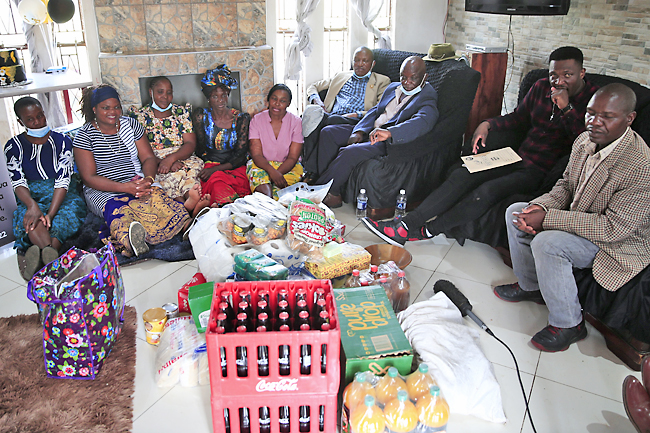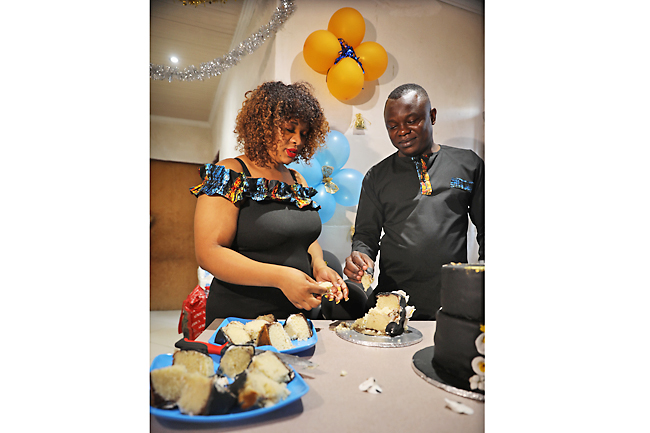HARARE, (XINHUA) – At a wedding ceremony in Ruwa, about 30km east of Zimbabwe’s capital Harare, the groom-to-be’s team attentively sat on a rug following the proceedings, which had just started.
On the opposite side of the room, a representative from the bride’s family held a list with the required payments before the groom could be formally introduced to the in-laws.
For each figure, negotiations between the two sides followed until an agreement on the amount was reached.
After some negotiations, with compromises on both sides, several United States (US) dollar notes were placed in a wooden bowl which was then forwarded to an elder from the bride’s side to count.
Women’s ululations and men’s handclaps flooded the room as greenbacks were handed over to the bride’s family.
Several procedures followed until the groom was finally allowed into the compound amid song and dance.


Despite economic hardships amid COVID-19 pandemic, the groom, 31-year-old Luciano Mafukidze, toiled throughout the year to raise bride-price, which included cash, groceries and eight cows, to marry Natasha Tizola.
Bride-price, or roora/lobola in the local Shona language, is the customary token paid by the groom-to-be to his future in-laws. It is seen as a token of appreciation to the bride’s parents for raising a daughter.
There is no stipulated amount set for the bride-price, and the figure mainly depends on how deep the pockets of the groom or his family are.
After the ceremony, which was held at the in-laws’ house, Mafukidze was in high spirits for having formally married the love of
his life.
“Getting Natasha was not a walkover, it was through hard work. It was my wish that I marry her,” Mafukidze told Xinhua.
The bride was equally happy to have brought joy and pride to her family.
“I am happy that I made my mother proud, I followed the proper procedures,” she said.
In marriage, the family of the bride and groom are very influential among Shona people, who constitute a large portion of Zimbabwe’s population.
Following proper marriage customs brings honour and respect to the family.
Benny Chimene, the mother of the bride, could not conceal her joy.
“I am very happy, I can’t even express it because kids nowadays just meet by the roadside, they express love and the next thing is that they are staying together. So I am happy with what my child has done,” said Chimene.
Edmund Mandishona Chitehwe, father of the groom, was happy to welcome an additional member to the family.
“I am very happy, welcoming a daughter-in-law during the beginning of the year after following the proper marriage procedure of paying bride-price,” he said. According to Shona tradition, men expand the family, while women unite families, and bride-price formalises and legalises the union.
The system has evolved from submission of a hoe to monetary payments, livestock
and groceries.
The payment of bride-price is also common in the other southern African countries such as Malawi, Zambia, South Africa and Botswana.
In some cases, the traditional marriage ceremony is followed by a Western-style wedding.
Although the family is still important in issues regarding marriage, there has been a gradual erosion of traditional customs.
This has seen more girls rushing into early marriages without following proper procedures. Economic hardships and social ills have also seen young men failing to raise funds to pay for bride-price.






